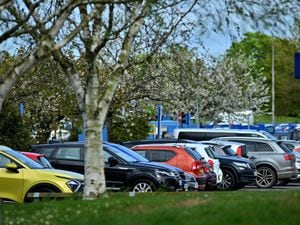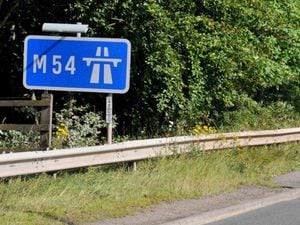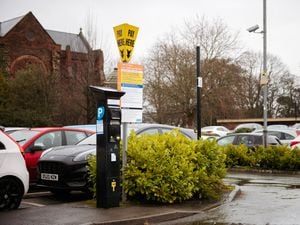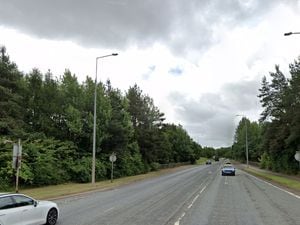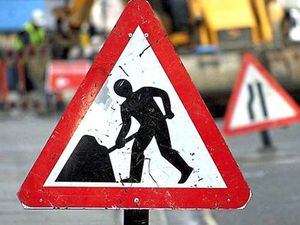Yellow box fines change: Common sense, or another example of fleecing motorists?
Soaring fuel prices, rising insurance costs, bus-lane cameras and speed traps. And, for many drivers, the "clean air" charges in Birmingham. Driving a car can be a pretty expensive business these days.
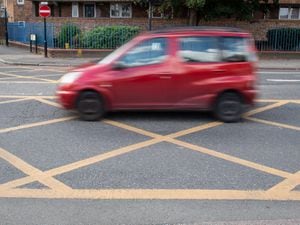
And it could be about to get much more expensive this summer. New laws, which come into force in June, will give local authorities new powers to impose fines for a raft of driving offences.
At the moment, enforcement of so-called "moving traffic offences", such as failing to adhere to road signs or stopping in yellow box-junctions (surely a stationary traffic offence?) is generally the preserve of the police. Exceptions to this rule have been in London and Cardiff, which have had the powers to enforce offences themselves, but from June 1 a further 300 local authorities in England – those which are already allowed to enforce parking offences and bus lanes – will be able to apply for special powers to impose fines for such offences.
Walsall Council has indicated it intends to apply for the new powers – although it won't be until December at the earliest – while Sandwell Council says it has also expressed an interest, but there are no immediate plans. Telford and Dudley are still weighing up the options. Wolverhampton and Shropshire Councils are yet to say whether they will take up the option.
Transport minister Baroness Vere says the legislation is basic common sense, giving local authorities the power to enforce road safety in their own neighbourhoods, while freeing police officers to concentrate on real crime.
But RAC spokesman Simon Williams is fearful that some cash-strapped authorities could see it as an opportunity to raise additional revenue.
Last year, a freedom-of-information request from the RAC revealed that authorities in London and Cardiff raked in a whopping £58.2 million from drivers committing moving traffic offences in just one year, 2018/19. And for the period from 2016-2019, the same councils issued 1.3 million fines, bringing in £86 million. That is a lot of money at a time when many councils are feeling the pinch.
Of course, many will say that the solution lies in the hands of the driver – don't break the rules and you won't get fined. But Mr Williams says experience shows that this is a simplistic view.
“It’s right that councils outside London have the ability to enforce known rule-breaking hotspots, but we’re fearful that some authorities may be over-enthusiastic in using their new powers for revenue raising reasons, to the detriment of drivers," he says.
“While the Government has pledged to give councils advice on how best to let drivers know enforcement is taking place, what’s really needed is clear guidance on making sure enforcement is always carried out fairly. Drivers who blatantly ignore signage or highway rules should expect penalties, but there are instances which are not always clear-cut."
Part of the problem, he says, is that many road layouts are designed is such a way that complying with the rules can be difficult.
“For example, large yellow box junctions can be particularly problematic to get across without stopping, often due to their design, so it’s important common sense is applied rather than instantly issuing penalties to drivers," he says.
"The first thing councils should do is review the road layout at these junctions to make sure drivers can negotiate them at all times, but especially at busy periods.”
The RAC commissioned chartered engineer Sam Wright, who was formerly responsible for the design and approval of yellow boxes in London, to write a report on how they are enforced in the capital. He found there was little official guidance to councils on the acceptable reasons for installing yellow boxes in the first place; there was no advice on what their purpose should be, how to design them in relation to vehicle movements, and no information on how they should be maintained and enforced.
John Fitzsimons, of the Love Money website, is in no doubt that some councils will view these new powers as an opportunity to boost their coffers.
"If they also happen to have dodgily-designed box junctions, which are effectively impossible to negotiate properly, then it is inevitable that some drivers will be on the receiving end of what the RAC describes as an 'avalanche' of unfair charges," he says.
Baroness Vere says councils will be expected to use these powers to improve connectivity, boost active travel, and increase air quality by reducing congestion.
“To ensure this change is fair, we will publish guidance for local authorities, so they can make drivers aware that enforcement is being undertaken,” she said.
Walsall Council says it does intend to apply for the new powers, but not until December at the earliest.
“We will be seeking to request the powers to enforce moving traffic offences," says spokeswoman Melinda Kaur.
"However, a timescale has currently not been agreed, and the authority will not be implementing enforcement before December 2022.
"The Department for Transport recently undertook a consultation on proposed options to manage pavement parking, the analysis of which has not been completed to date.
"Until the results of this consultation are known it would be inappropriate to commit to any course of action but in the interim period we will continue to use our existing powers.”
Last month, Walsall Council agreed to remove a controversial bus lane that has caught out thousands of motorists, landing them with fixed-penalty notices. More than 35,000 drivers had been fined since the road layout was introduced in November 2020, leading to calls for the charges to be refunded.
Sandwell Council says it has expressed an interest to the Department for Transport in acquiring the new powers for some moving traffic contraventions, at some point in the future. But a spokesman, who declined to be named, says there the process is likely to take some time to work through, and therefore there can be no firm timescale. Like Walsall, the council is also considering the possible use of new powers to enforce laws over parking on pavements.
Dudley Council's director of public realm Andy Vaughan says the authority is still considering whether to apply for the extra powers.
“The council is currently reviewing the proposals and no decision has yet been made as to whether to apply for the additional enforcement powers,” he says.
Wolverhampton Council was approached for comment, but did not reply. Earlier this month it was revealed that the authority had raked in almost £700,000 in one year from 27,725 fines issued to drivers illegally using bus lanes.
Councillor David Williams, Staffordshire County Council’s cabinet member for highways and transport, says the authority has no plans to adopt these powers at the moment.
A unnamed spokesman for Telford & Wrekin Council, said the authority would be likely to see how other councils implement the new rules before doing so themselves.
“Telford & Wrekin Council is aware of these changes, allowing us to enforce moving traffic violations for offences such as making banned turns, exceeding weight limits and unreasonably stopping in yellow box junctions amongst others.
“As many councils are adopting the regulations, it is a complex set of regulations and we intend to learn from other councils and consider the best approach for Telford & Wrekin.
“We recognise these new powers, and will be considering all available options with the safety of motorists remaining a priority. Residents will be kept fully informed, should any new measures to the way regulation of the highways are carried out.”
Under devolved powers, local authorities in Wales can already apply for powers to enforce moving traffic offences, but John Evans of Powys Council says the authority has no plans to do so.
Shropshire Council was also approached for comment.

